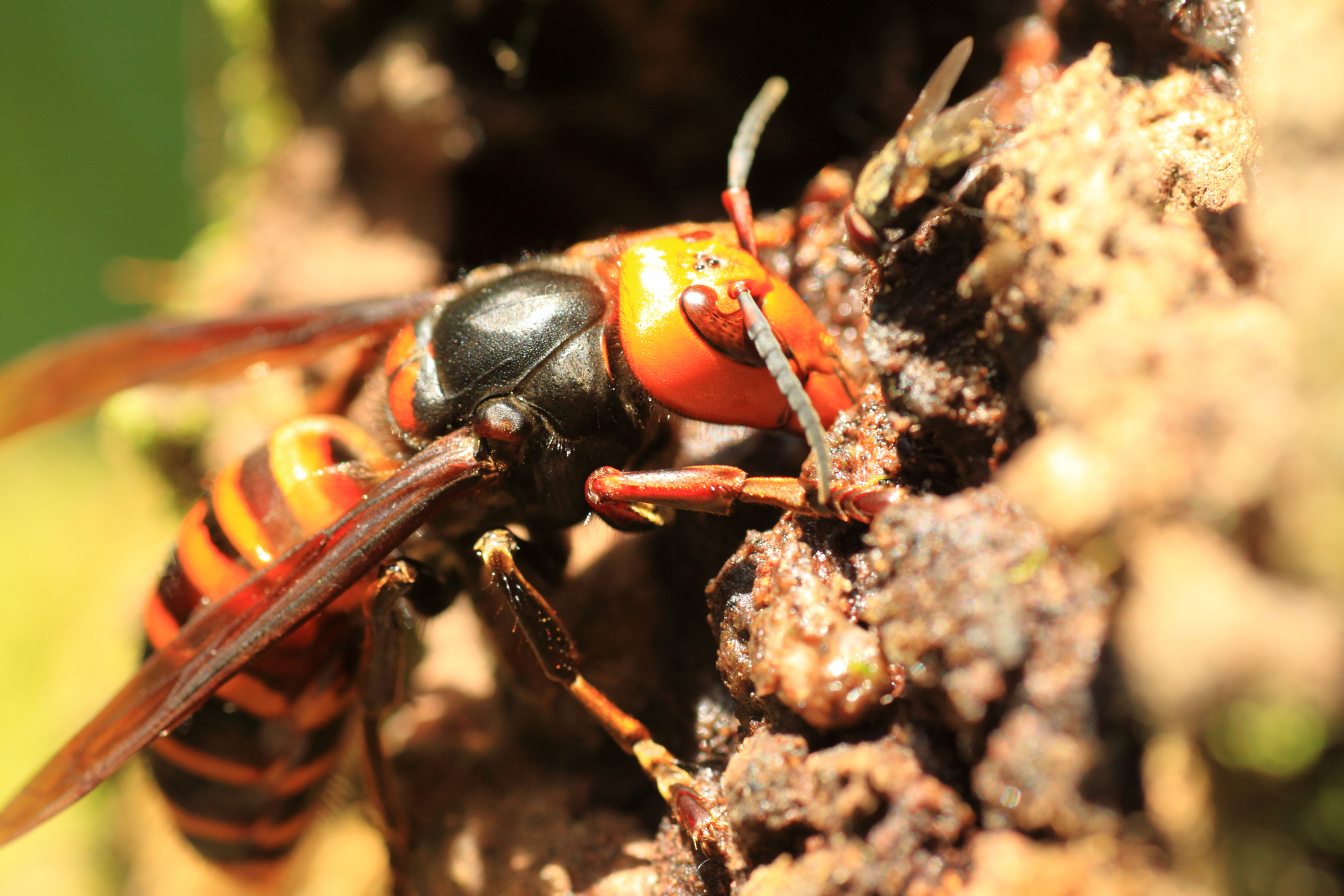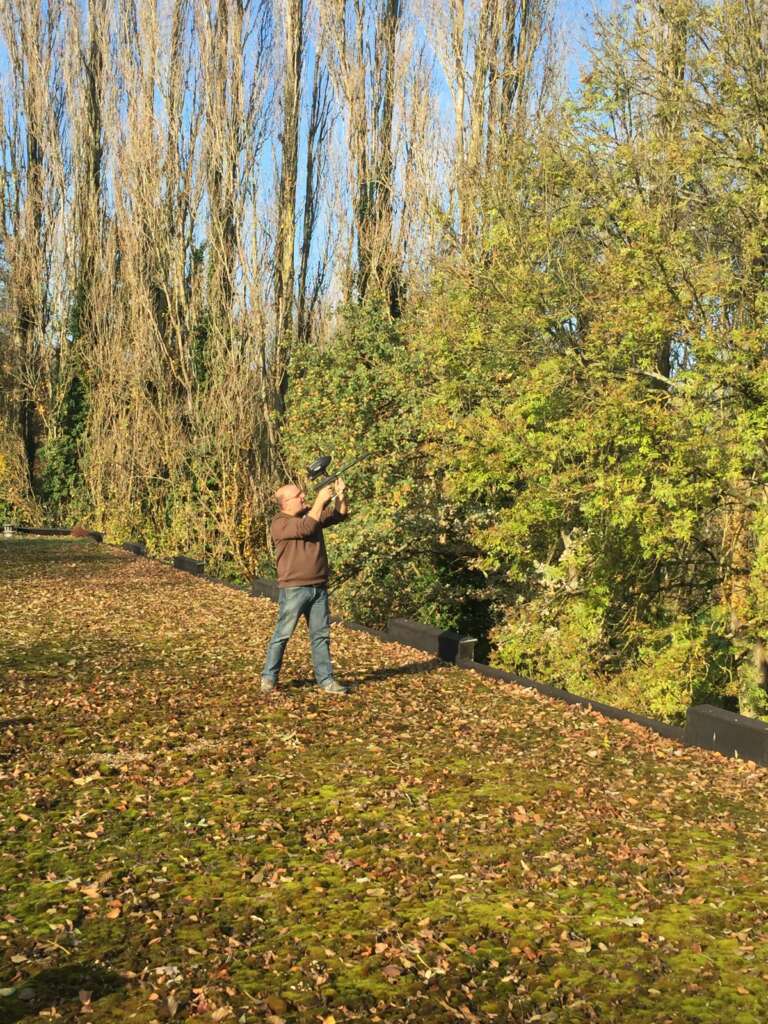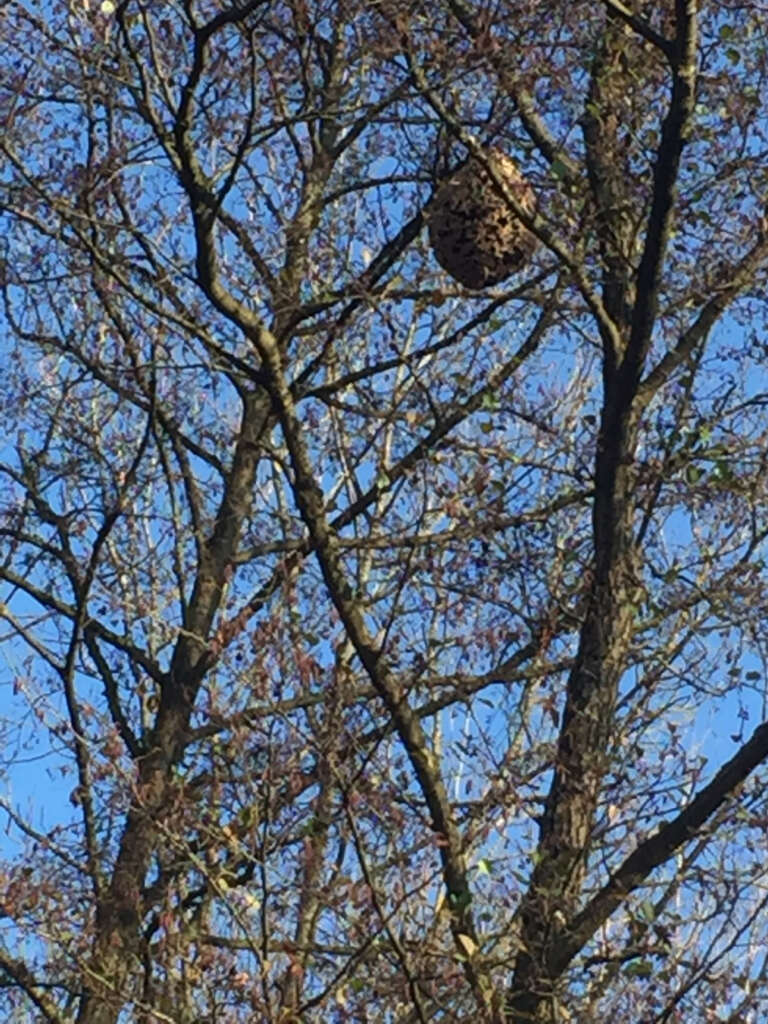knowing asian hornets to eradicate them
The Asian hornet (Vespa velutina) is a stinging insect of the order Hymenoptera. It has a smaller body size than the European hornet, with adult size ranging from 16 to 30 mm for workers and 20 to 35 mm for queens. The Asian hornet is dark brown in colour with a yellow-orange abdomen and yellow tips on its legs. The Asian hornet lives in a hierarchical colony. It is an invasive and very aggressive species. It is strongly advised not to approach an Asian hornet’s nest within 10 meters. It feeds on proteins by hunting other insects such as flies, spiders, caterpillars and various larvae, but mainly bees, which causes a real ecological disaster.

where asian hornets live :
Like all invasive species the Asian hornet is an opportunist that builds its nest anywhere the founding queen feels the conditions of safety, climatic protection and feeding are met. You will find them in garden sheds, barns, walls, birdhouses but mainly on trees at heights of over 10 meters. The material for the nest is obtained by chewing wood twigs. The main nest reaches its maximum size in August and weighs several kilos, mainly due to the weight of the larvae. The construction is very strong and if it is
suspended high up it must be hung on a solid support. If the climatic conditions are favourable and the food supply abundant, the capacity of the main nest will be quickly reached, so it is common that from September onwards the colony decides to build secondary nests which will not be closer than 100 meters to the main nest. The size of the main nest can be up to 100 cm high and 80 cm in diameter, whereas a secondary nest is no bigger than a volleyball. All nests, whether primary or secondary, are bound to die as soon as winter sets in and will deteriorate naturally.
Hornet Lifestyle :
As with European wasps and hornets, the founding queen of the annual colony begins by building a first nest no larger than a tennis ball. She lays her first eggs, cares for, protects and feeds her first larvae which will become her first workers whose purpose will be to start building the main nest, hunting other insects which will serve to feed the larvae that will follow them. At this point the queen is only laying eggs. The period of evolution from egg to adult insect is relatively long (30 to 50 days depending on climatic conditions and food sources) and assuming that the queen can lay more than 10,000 eggs, the colony will consist of about 2,000 adult insects, including several hundred future queens, and several thousand larvae during August. As winter approaches, the future queens and males will leave the colony to mate. Once the mating period is over, the fertilised queens will look for a place to overwinter (tree stumps, dead trees or underground), the rest of the colony will die as soon as the first cold weather arrives. In the following spring, a good proportion of the fertilised queens will not have survived the winter, but there will be enough left to ensure exponential development of the species.
Hornets Nuisances :
If you are not a Pest Control professional never approach an Asian hornet nest, even a primary nest as a founding queen is very hostile and will defend her first offspring to the death. If they have nested in your garden shed, barn, wall or bird house they will not allow you access and will attack you within 10 meters of the nest. The stings are thinner and longer than those of European hornets and only a special suit can protect the worker. In addition, even when effectively protected, great self-control is required to avoid panicking and causing accidents with serious consequences. A sting will cause severe pain and allergies that can lead to death.
For these reasons we strongly advise you to solve your infestation problem by trusting one of the [Pest Control service providers] present on our directory or for the most unaware of you to provide yourself with [materials and products] available from our partner.
Also find out more about european hornet or wasp
How to treat an Asian hornet's nest


It is not advisable to treat a Asian hornet’s nest yourself as your health and even your life are at stake. Please consider the following:
In 99% of cases you have no experience in this field. Do you think that a good store-bought insecticide can solve your problem? This is not true!
Asian hornets are insects with a survival instinct that will make them willing to sacrifice themselves for the preservation of their colony. Is the same true for you? No !
Approaching a hornet’s nest requires a special suit that you do not have.
If you attack a hornet’s nest with your insecticide spray, you will be alone against several hundred insects, which will attack you from all sides and which, unlike you, will not panic or make any mistakes.
So, one piece of advice: call a Pest Controler who has a perfect command of this kind of situation.

